Mahendra Patel urges pharmacy professionals to be cautious with their social media posts, underscoring the dangers of disinformation and misinformation
As far-right violence escalates across the UK, Professor Mahendra Patel, Honorary Doctor of Health at the University of Bradford, has urged pharmacy teams to uphold solidarity and professionalism, showing stability and fairness to provide the best care during these difficult times of public unrest.
Speaking to Pharmacy Business, Patel stressed the importance of valuing and respecting the diversity within the pharmacy profession while presenting a united stance against racism and discrimination.
Violence erupted across the UK after rumours spread online that the suspect in the dance class stabbing attack in Southport last week was a Muslim and an immigrant. This misinformation reportedly incited anger among far-right supporters, leading to clashes with anti-racism protesters over the weekend.
Commenting on the ongoing far-right riots across the UK, he stated: “What we are seeing is not normal behaviour by any means and it is clearly very frightening and worrying for everyone with potentially huge impact on daily lives.”
At present, this situation is particularly impacting individuals of the Muslim faith and Black ethnic minorities.
However, Patel, who is also the Chair of Inclusion and Diversity at the Guild of Healthcare Pharmacists (GHP), is not only shocked and saddened by the violent public disorder events witnessed recently but also worryingly mindful of potential impact on other ethnic minority groups should such unrest continue.
Beware of misinformation on social media
Patel also urged pharmacy professionals to exercise caution with their social media posts, highlighting the widespread issue of disinformation and misinformation.
“We as healthcare professionals, as pharmacy professionals, need to understand the value put on social media messaging.
“It is crucially important that we are aware and recognise the dangers of factually incorrect information that is available with the volumes of disinformation and misinformation that is publicly shared through social media platforms.
“Misinformation occurs when someone is misinformed and this incorrect information is shared, whereas disinformation is a deliberate attempt to hurt somebody through wrong information,” he explained.
Patel warned that misinformation and disinformation, combined with how people engage on social media platforms, can intensify and fuel the spread of this rapidly moving unpleasant energy that can be destructive for all, not just for one society or community.
"it’s important not to focus headline news and then jump to conclusions without knowing the context nor the facts,” Patel said.
He wants pharmacy professionals to always remember that they are highly trusted voices in the community, and this applies to both on and off duty.
“So, it is important not to incite hatred or get into any toxic dialogue, because it is this toxicity that then gathers the momentum, with often unintentional sprinklings of misinformation alongside deliberate disinformation, that can quickly escalate into a fireball that may be difficult to contain,” he said.
The strength of multiculturalism in the profession
Patel, one of the independent expert members of the UK Pharmacy Professional Leadership Advisory Board (UKPPLAB), appealed to pharmacy professionals to continue to look at the positives, such as the strength derived from having a diverse, multi-racial diaspora of healthcare professionals.
“Multiculturalism within the profession and society has helped us to excel in so many different ways through both our personal and professional lives.
“It’s crucial that we focus on the vast positives and not let the minority of ill-informed opinions when it comes to racism and discrimination become centre stage and before entering into any constructive dialogue.
“This is a huge opportunity for pharmacy leaders to become leaders and to utilise their strengths through bringing unity and harmony and ensure safety for all through our work and within our work,” he said.
He urged people in the sector to set aside negative or destructive information and instead unite to appreciate and reflect on the endless positives and opportunities diversity has brought to avoid deeper problems.
“Ultimately, we must not forget that we are a caring, understanding and supporting profession.
“Let’s build on the very strong foundation that we have established over a great many years and not unravel any of the good work, and not ignore the efforts of everyone who have worked so hard meaningfully and constructively in creating a safe, fair and equitable culture for all,” he said.
Promote a culture of zero tolerance for racism and discrimination
Patel urged all pharmacy professionals to stand against racism and discrimination, reminding them of Principle 2 of the Inclusive Pharmacy Practice (IPP), lead by NHS England together with national pharmacy organisations, of which he is a national board member.
It states: “We will commit as professionals to value all people and to adopt and promote a culture of zero tolerance to all kinds of harassment, bullying and discrimination in the workplace.”
Furthermore, he emphasised the need for pharmacy professionals and leaders to unite and provide a voice of stability and fairness, and at the same time ensure every effort is made to safeguard pharmacy staff as well as patients and members of the public.
“This is a time for pharmacy to, once again, appreciate and respect our differences while also recognising our strengths in coming together and stepping up to the mark as a united profession as we demonstrated so admirably during the pandemic.”
“We need to show solidarity and unity, and as trusted professionals within the healthcare sector, we must provide a voice of stability and fairness, avoiding destructive behaviour driven by personal opinions.
“We are professionals and must adhere to our professional code of conduct, whilst ensuring that our teams are supported to remain safe and do the same so we can deliver the best care even under these circumstances,” he added.
Pharmacy bodies including the General Pharmaceutical Council (GPHC), Royal Pharmaceutical Society (RPS), Company Chemists Association (CCA), Association of Pharmacy Technicians UK (APTUK), National Pharmacy Association (NPA), Guild of Healthcare Pharmacists, Pharmacists’ Defence Association (PDA), and Independent Pharmacies Association (IPA) have also demonstrated a united stance on maintaining zero tolerance for racism.
A joint statement was released in response to the current riots across the UK.
It reads: “We are shocked and saddened by the violent public disorder events in recent days.
“We acknowledge how all sectors of the pharmacy profession may be impacted and recognise the challenges that this level of overt aggression can have on people’s ability or willingness to live their daily lives.
“The pharmacy workforce deserves peace and safety, not fear and harm. We stand united in having a zero tolerance of racism towards our colleagues or the public in whatever form it takes.”










 Health Secretary Wes Streeting addresses Pharmacy Conference via video
Health Secretary Wes Streeting addresses Pharmacy Conference via video 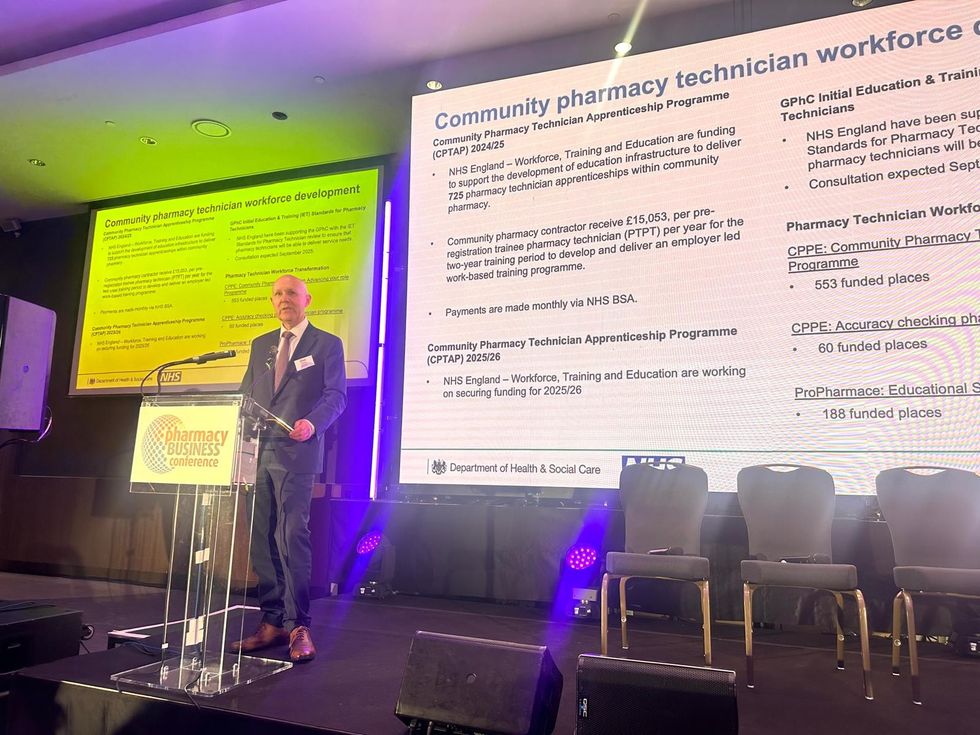 David Webb, chief pharmaceutical officer of NHS England
David Webb, chief pharmaceutical officer of NHS England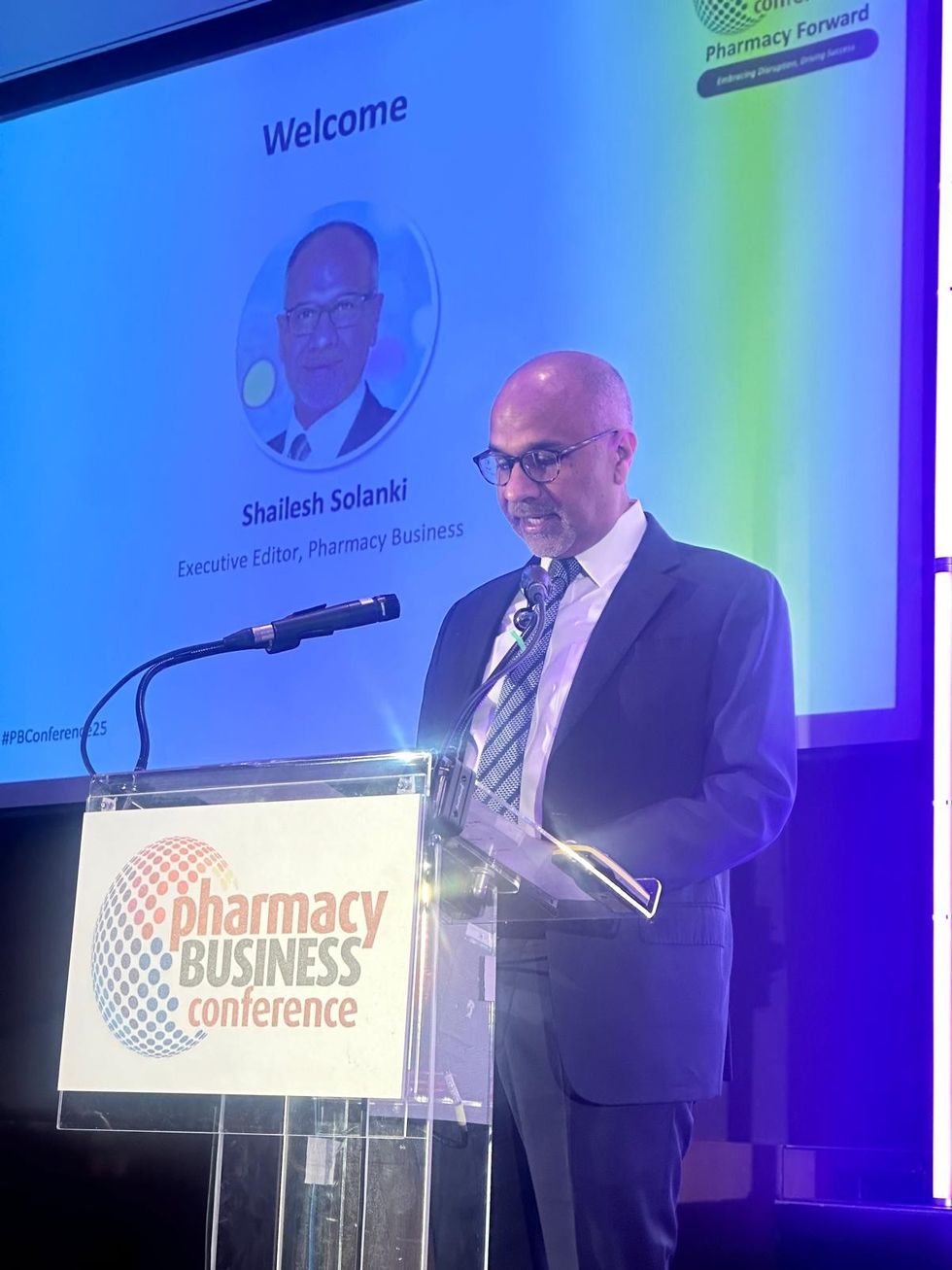 Shailesh Solanki, executive editor of Pharmacy Business
Shailesh Solanki, executive editor of Pharmacy Business L-R: Yasmin Karsan, Pritee Panchmatia and Fin McCaul
L-R: Yasmin Karsan, Pritee Panchmatia and Fin McCaul  L-R: Baba Akomolafe, Rachna Chhatralia, Patricia Tigenoah-Ojo and Raj Matharu
L-R: Baba Akomolafe, Rachna Chhatralia, Patricia Tigenoah-Ojo and Raj Matharu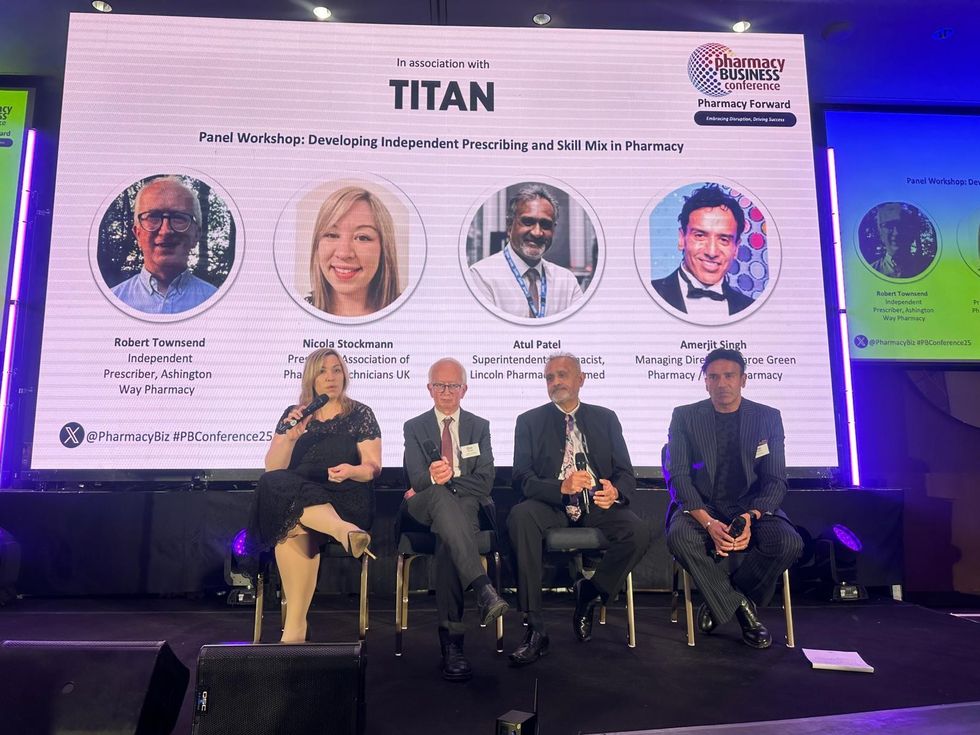 L- R: Nicola Stockmann, Robert Townsend, Atul Patel and Amerjit Singh
L- R: Nicola Stockmann, Robert Townsend, Atul Patel and Amerjit Singh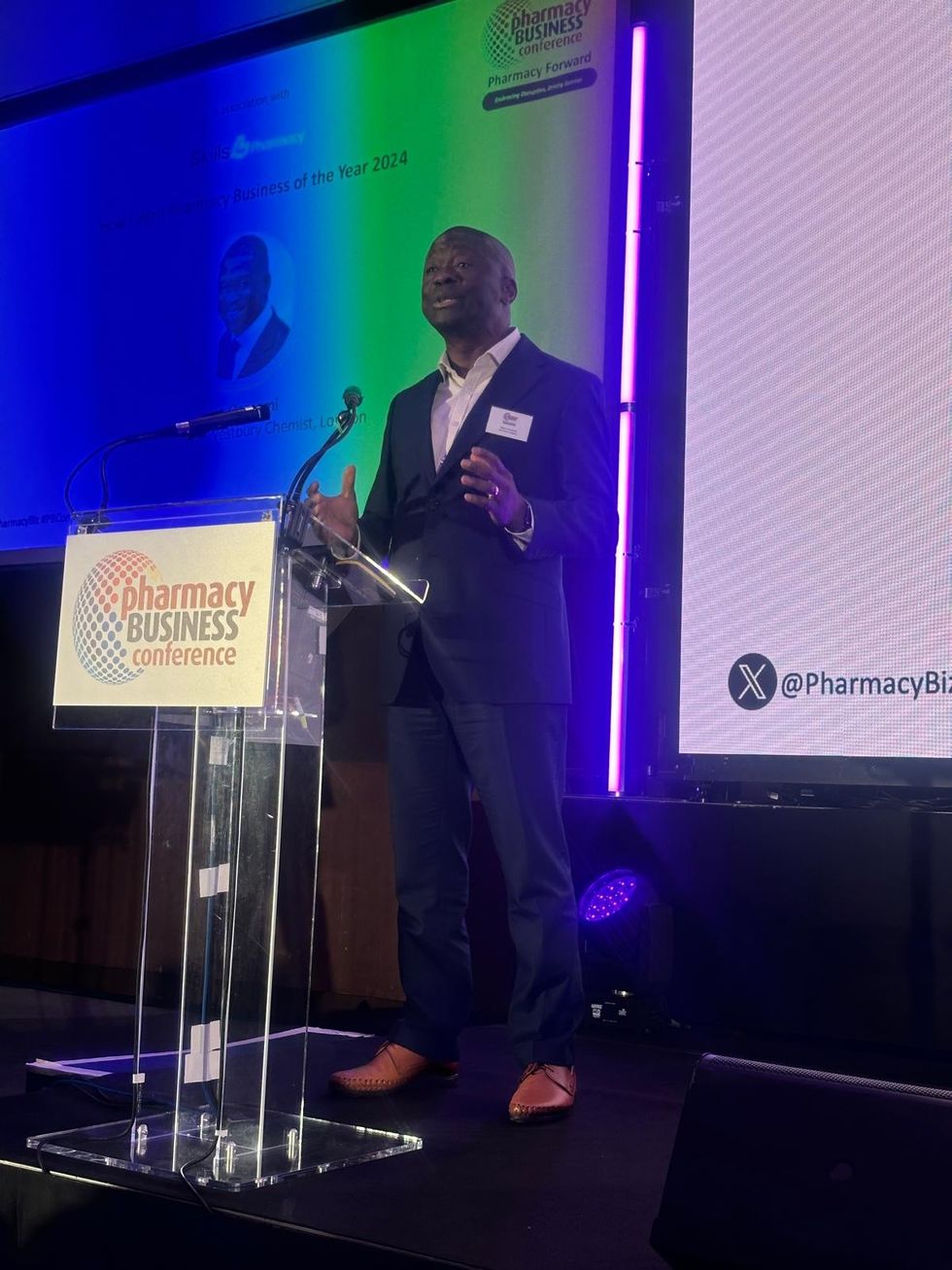 Wole Ososami, lead pharmacist at Westbury Chemist
Wole Ososami, lead pharmacist at Westbury Chemist








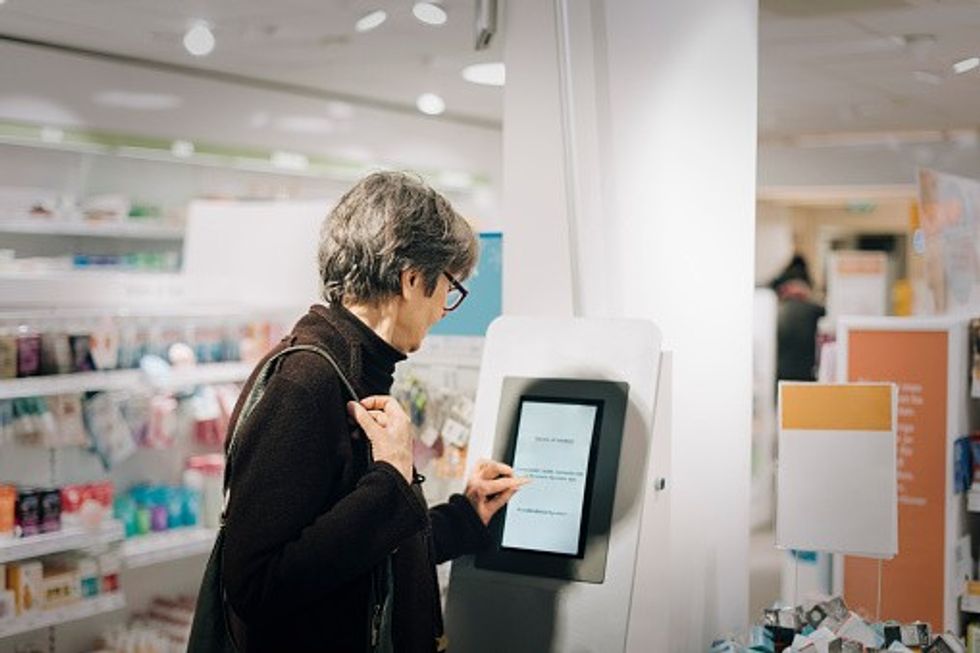 A woman using kiosk at pharmacy store gettyimages
A woman using kiosk at pharmacy store gettyimages  Pharmacist examining commissioning machine in pharmacy gettyimages
Pharmacist examining commissioning machine in pharmacy gettyimages